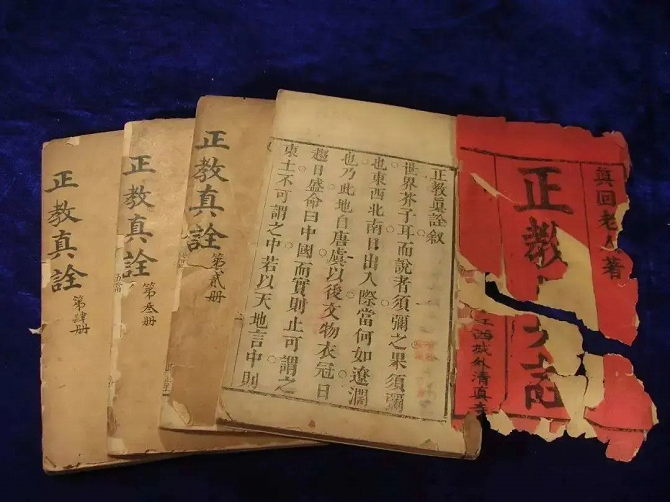What does the "Confluence of Islam and Confucianism" Convey to Modern Civilizations?
Editor's Note: Chinese culture has a long-standing condition of inclusiveness, with a commitment to finding common ground whilst accommodating differences. Within Chinese religions, there's also a notable emphasis on facilitating harmonious co-existence. Islamic culture has acquired distinctive Chinese characteristics through sinicization and intermingling with Confucianism. Chinese Muslims apply oriental wisdom to understand, interpret and express their faith. Transcending the traditional dichotomy in western culture, oriental wisdom emphasizes tolerance, harmony and unity of man and nature. All these ideas and practices have, to varying degrees, promoted the exchange and mutual learning among civilizations.
In May 2019, at the opening ceremony of the Conference on Dialogue of Asian Civilizations, President Xi Jinping pointed out that "Chinese civilization, as an inclusive and integrated whole, has become what it is today through constant interactions with other civilizations. It has been enriched by the introduction of Buddhism and the confluence of Islam and Confucianism in the old days, and by the introduction of Western learning, the launch of the New Culture Movement and the introduction of Marxism and socialism in modern times. All-round opening-up of the country, starting with the reform and opening-up program, has added to its vitality today."
According to Guiping Yang, a professor from Minzu University of China, the confluence of Islam and Confucianism provides noteworthy illustration of the mutual respect of civilizations and of the sinicization of Islam which eventually enhanced the cultural identity of people from all ethnic groups.

What is the "confluence of Islam and Confucianism"? How to understand it?
The "confluence of Islam and Confucianism" refers to the cultural consciousness activities of Chinese Muslim scholars from the Ming and Qing dynasties till the early days of the Republic of China. By translating Islamic scriptures into Chinese, these scholars combined the rich resources of Islamic culture with Chinese culture, and built a Chinese Islamic ideology that integrated Confucian concepts, terms and categories, reflecting the idea of "unity in plurality" in Chinese culture.
The process of sinicization of Islam aimed to identify with Chinese culture exemplified by Confucianism. During the mid and late Ming Dynasty, a revitalized mosque education successfully integrated Islamic culture with Confucianism.
How did theconfluenceof Islam and Confucianism come into being?
Early scholars' dispassionate account of contrasting and comparable features in the worldview, outlook on life, and epistemology of Islamic culture and Confucianism facilitated the fusion of the two cultures, fostering mutual recognition and learning. They initiated the movement of "interpreting the scriptures through Confucianism", translating Islamic texts into Chinese through the application of core concepts in Confucianism. They grasped the fundamental tenets of Confucian culture with an emphasis on life in reality and human ethics, and actively identified themselves with mainstream Confucianism. The Islamic system of thought they constructed combined the "Five Worshipping Acts of the Way of Heaven" with the ethical ideas of the "Five Bonds of the Way of Man", thus building a bridge between Islamic culture and Confucianism.
What are the similarities between the "Way of Heaven" and the "Way of Man", and how do Islamic culture and Confucianism communicate and converge in this regard?
Mainstream Confucianism does not reject religion. On the contrary, it recognizes the crucial role of religion in people's education and guidance, especially its social and emotional functions. The Confucian classics acknowledge the concept of "Heaven" and encourage rulers to perform religious rituals and activities to fully utilize the moral and edifying role of divinity.
Admittedly, Confucianism lays more emphasis on the "Way of Man" than theology. Confucius himself refrained his followers from talking about past lives or the afterlife. While being actively concerned with social life, Confucianism stills regards the "Way of Heaven" or the "Mandate of Heaven" as the supreme foundation of human values and as a continuation as well as an integral part of the "Way of Man".
The five core human relationships involve those between father and son, monarch and minister, husband and wife, between siblings, and between friends, but the basis of these relationships lies in "Heaven" or the "Way of Heaven". Therefore, in Confucian culture, the "Way of Man" and the "Way of Heaven" are not opposite to each other, but fundamentally unified.
Some Chinese scholars explained "Way of Heaven" and "Way of Man" from the perspective of semantics, seeking to align Islamic culture with Confucianism, focusing on the similarities so as to facilitate exchange between the two cultures.
What is the significance of the "confluence of Islam and Confucianism" for modern civilizations?
Chinese culture has a long-standing tradition of inclusiveness, with a commitment to finding common ground whilst accommodating differences. Within Chinese religions, there's also a notable emphasis on facilitating harmonious co-existence. For thousands of years, Confucianism and Islam have steadfastly coexisted in harmony, serving as a remarkable demonstration of inter-cultural dialogue and mutual respect. Respecting diversity, comprehending differences and collaborating cohesively is invaluable to inter-cultural dialogue on an equal footing.
Islamic culture, through sinicization, has intermingled with Confucianism to form a distinctively Chinese form of Islam. Chinese Muslims apply oriental wisdom to understand, interpret and express their faith. Transcending the dichotomy between revelation and reason, existence and thought, subject and object, oriental wisdom emphasizes tolerance, harmony and co-existence; it stresses the complementary relationship between heaven and man, nature and society, East and West; it advocates the Middle Way, rationality and tolerance, encouraging pluralism, cooperation and peace, and opposing division, confrontation and violence. All these ideas and practices have, to varying degrees, promoted the exchange and mutual respect of modern civilizations.
The views don't necessarily reflect those of DeepChina. The author is Yang Guiping, professor at the School of Philosophy and Religious Studies at Minzu University of China.
